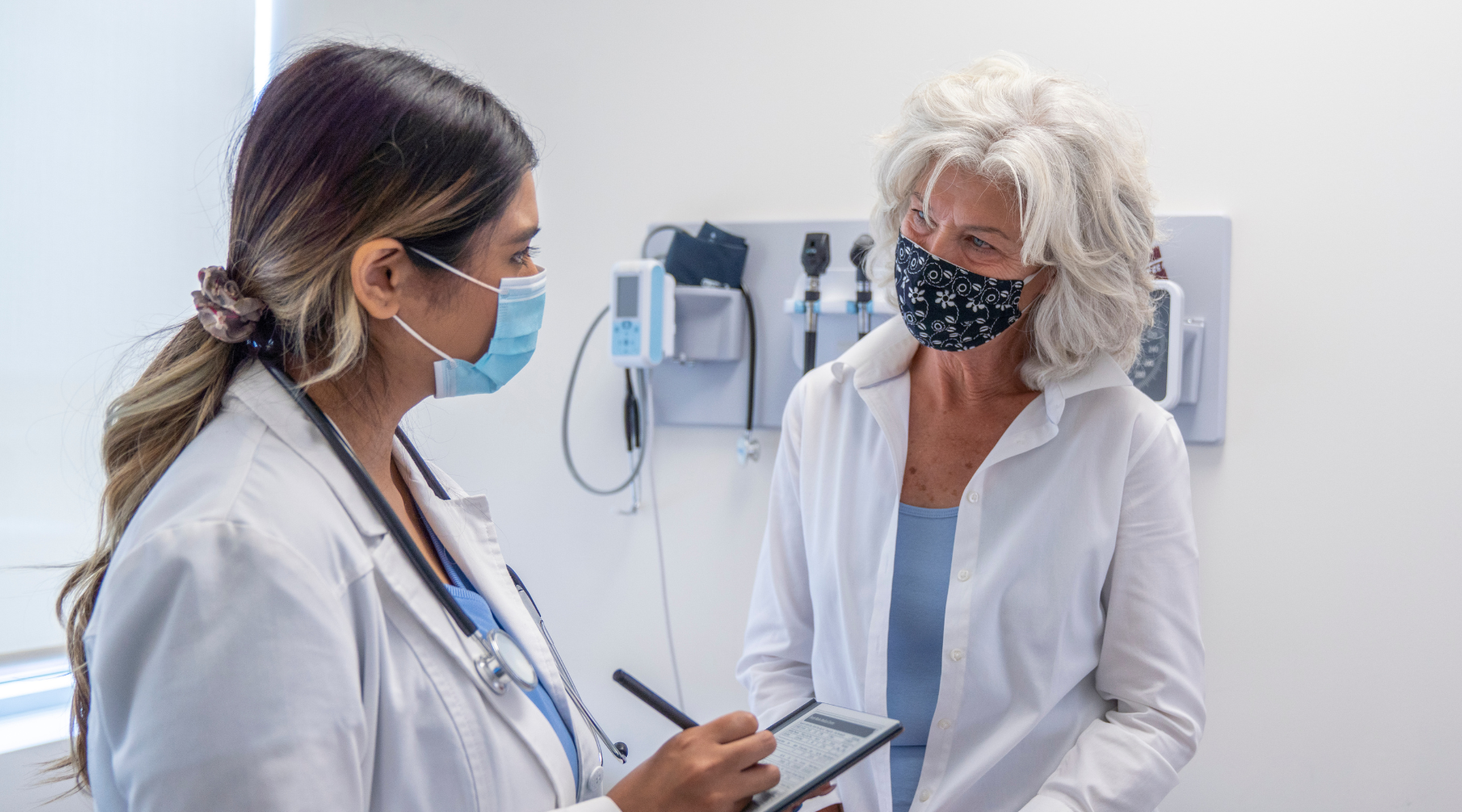Have you ever walked out of an appointment with a health care provider and thought, “I’m not sure the doctor heard me”? Or, “What, exactly, was I just told?”
Communication between physicians and patients has always been difficult. On one side, you have a professional trained in a complicated and technical field that’s knee-deep in obscure terms and jargon. That professional is also under considerable pressure to complete that visit as quickly as possible. Many more patients need to be taken care of, and there are very real consequences – both human and financial – to delays.
Meanwhile, patients are under pressure of a different sort. If we’re visiting the doctor, it’s usually because something is wrong. That means we’re likely in some kind of physical pain or discomfort. And we’re probably also anxious, fearing that whatever we’re experiencing might signal that something is capital W wrong with us, the tip of some terrible iceberg.
Plus, of course, we didn’t go to medical school. We may not know what it means when we’re told our CBC count is low or our iron levels are high. But we might be too intimidated or flustered to say so.
Throw all these ingredients together, and you have a recipe that seems doomed for failure. Or, as The New York Times recently dubbed a closely related phenomenon, “medical gaslighting.” That’s the experience of having one’s concerns dismissed by a medical provider.
The term makes it seem as if the care provider is the one at fault. But failing to communicate is a two-way street. And there are steps that we, as patients, can take to ensure we receive the care we deserve.
First, says Dr. Hal Scofield, an internist and member of the Arthritis and Clinical Immunology Research Program at the Oklahoma Medical Research Foundation, it’s important to come to your visit prepared. “Make a list beforehand of your most important symptoms and questions,” he says. That way, you won’t forget something crucial in the heat of the moment.
Likewise, he recommends bringing your medications with you to ensure your physician knows exactly what you’re taking. And if you’re seeing a new care provider or a specialist, Scofield urges you to take care of getting medical records transferred yourself. “Go pick up your own records,” he says. “If you just rely on the system, we all know how that can go.”
The medical care experience can be overwhelming, so consider having a friend or family member accompany you. When the late Dr. Stephen Prescott, OMRF’s president for 15 years, underwent care for cancer, he made sure to bring his good friend Dr. Bill Hawley with him to every doctor’s appointment.
“Bill hears things that I don’t,” Dr. Prescott would say. “And he asks questions that I might not.”
If an accomplished physician and medical researcher like Steve could benefit from an advocate and second set of ears, so can we all.
Finally, it’s important to make the best of your limited time together. It’s easy to fall into small talk, but that can soak up precious minutes. Instead, be sure to focus on the issue or issues that are most important to you, and if you feel like you’re not being heard, don’t be afraid to circle back.
In medical care, as in so much else, we need to be our own best advocates. These simple steps can help ensure we are – and that our health care providers deliver the care we all deserve.
__
Dr. Andrew Weyrich is president of the Oklahoma Medical Research Foundation, and Adam Cohen is OMRF’s senior vice president and general counsel. They can be reached at contact@omrf.org. Get On Your Health delivered to your inbox — sign up here.




